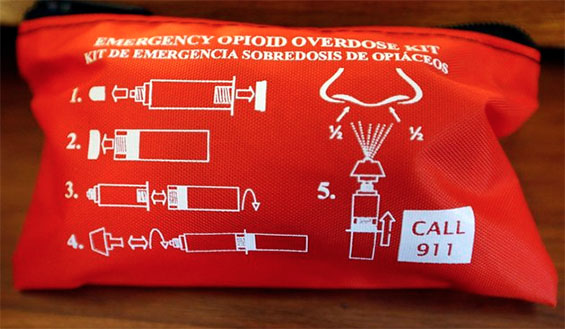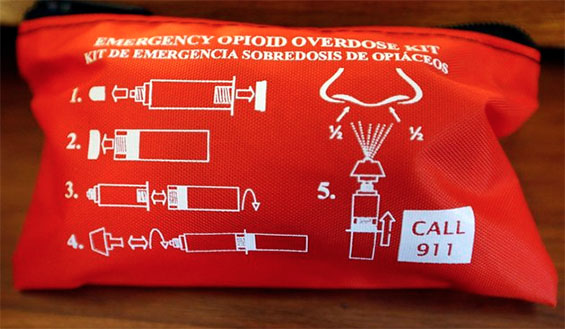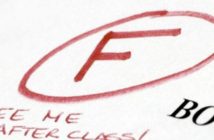
A new initiative by the Clinton Foundation will make emergency opioid reversal kits available free of charge to any high school in the United States that wishes to have one on-site.
The initiative, announced earlier this week by the Foundation and Adapt Pharma, the maker of the drug, comes as part of an effort by the company to increase access to the drug, which they say could save lives. Naloxone is a nonaddictive and nontoxic drug that reverses the effects of an opioid overdose by blocking the receptors targeted by heroin and many prescription painkillers.
The US Food and Drug Administration approved a nasal-spray version of the drug in November. Prior to that, it had been gaining popularity among first responders and advocacy groups who believe it to be a first line of defense in decreasing the number of overdose-related deaths in the country.
“We understand the crucial role schools can play to change the course of the opioid overdose epidemic by working with students and families. We also want every high school in the country to be prepared for an opioid emergency by having access to a carton of Narcan Nasal Spray at no cost,” Adapt Pharma CEO Seamus Mulligan said in a press release. “We look forward to working with our partners to implement these initiatives which build on the significant progress being made by legislators and community groups.”
The company has also announced a grant given to the National Association of School Nurses to be put toward opioid overdose education, writes Nick Wing for The Huffington Post.
Two devices are generally included in a single carton of Adapt’s Narcan Nasal Spray, which comes at a cost of $75. Each device is able to deliver a single dose. Adapt announced a partnership with the Clinton Foundation in November with the goal of reducing the cost of the medication after large increases in price for similar products were seen the previous year.
Opioid abuse has risen significantly among young people in recent years, high school students choosing to take prescription pills before moving on to other drugs such as heroin, reports Tina Forbes for The Nashua Telegraph.
Robert Childs, executive director for the North Carolina Harm Reduction Coalition, is also an advocate for naloxone and has called the partnership a step in the right direction. According to Childs, having the medication on-site will allow the designated school responder to handle a potential overdose on the scene, which will help to decrease the chances of death or potential brain damage from respiratory failure.
Childs went on to say that naloxone is just one of the available options for handling these situations, and that 911 good Samaritan policies should also be enacted at the state level, as well as in colleges and schools, offering amnesty to anyone who reports a drug overdose.
He would also like to see steps taken to make it easier for drug users and their families to obtain naloxone. In addition, he said medications used to treat opioid dependency such as methadone and buprenorphine should become more affordable.




